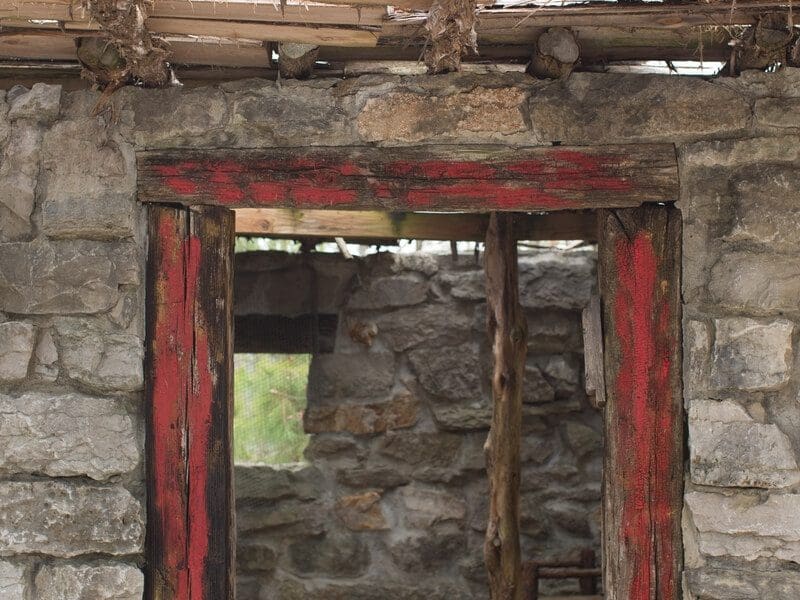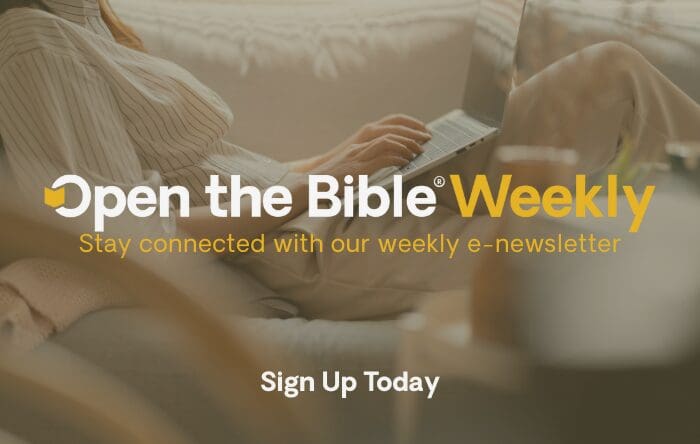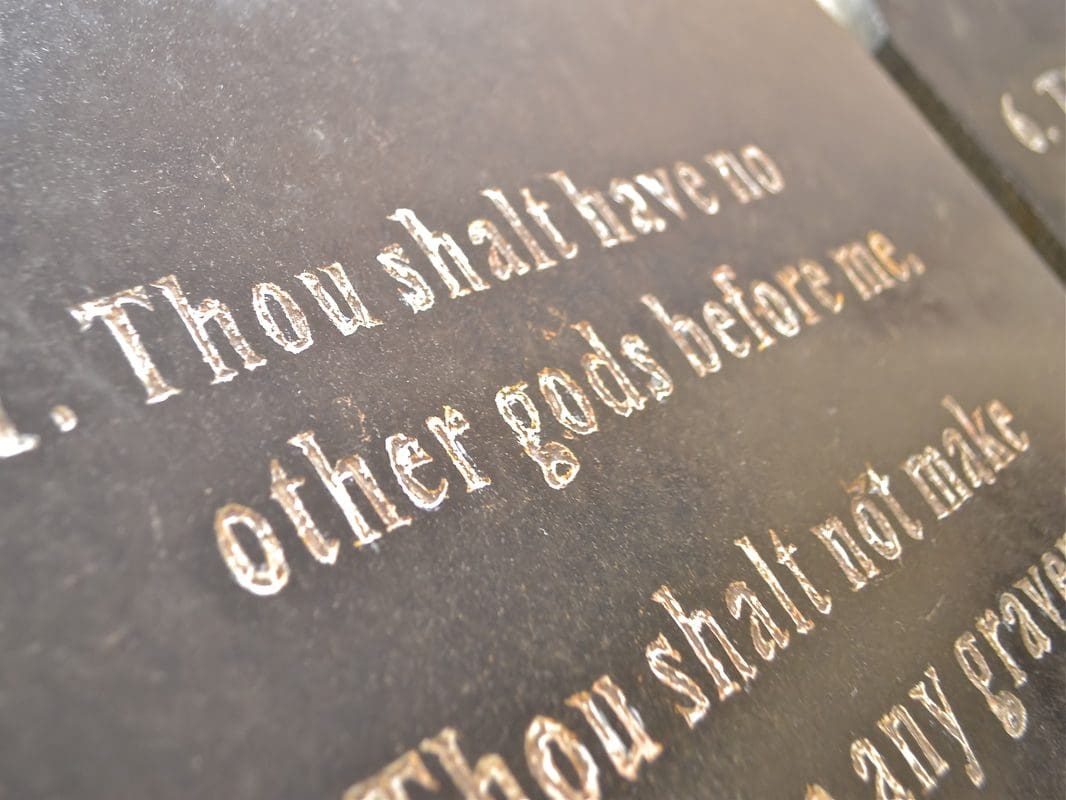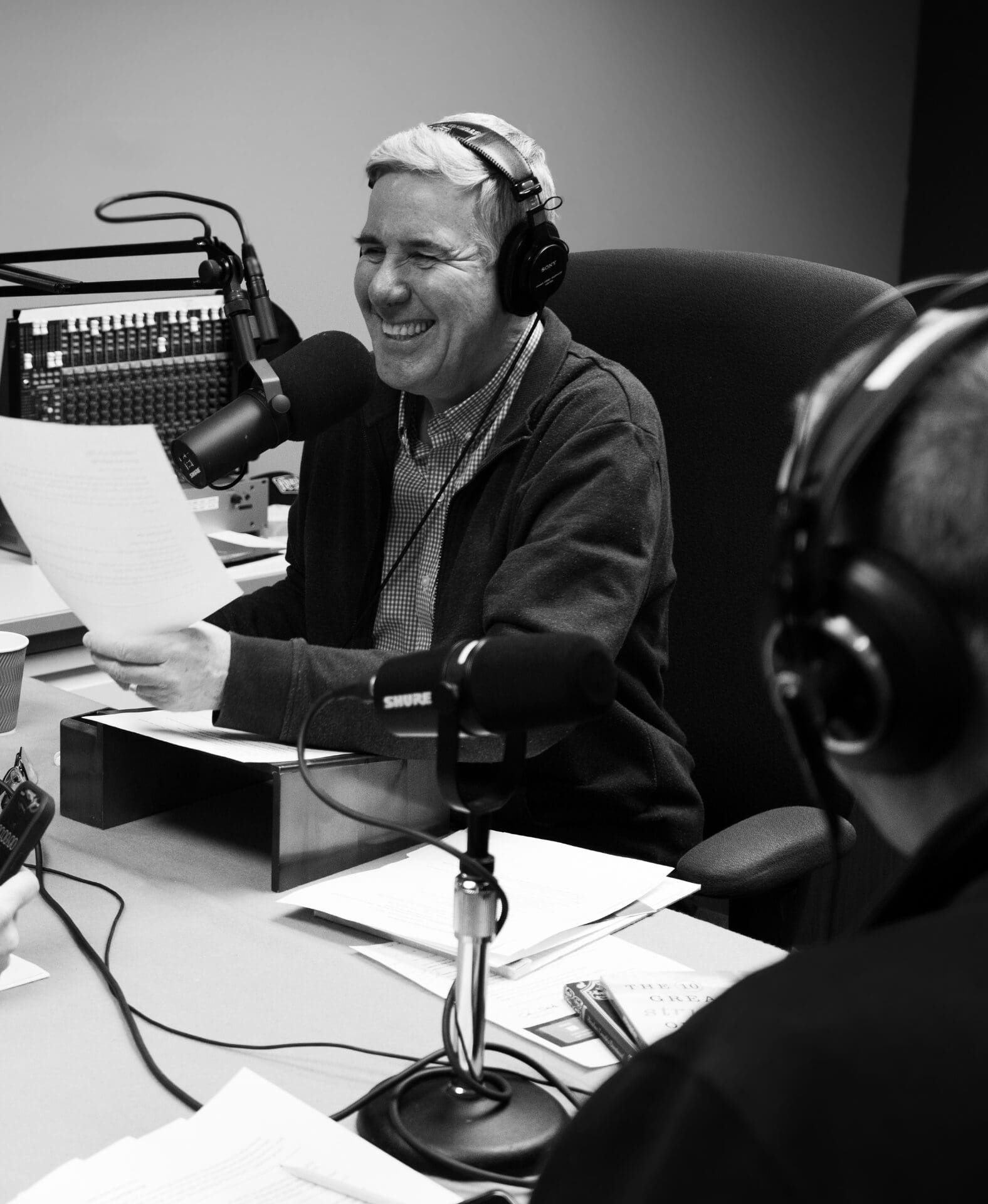
The Hike
Blood
Exodus 12:1–13

The family God had promised to bless grew. Abraham’s son, Isaac, fathered Jacob, and Jacob had twelve sons, who became the fathers of the twelve tribes of Israel. God’s people moved to Egypt because of a famine, and over the next four hundred years they grew from an extended family of seventy to around two million people. As they grew, they were oppressed, but God heard their cry for help and delivered them.
Racial oppression has been one of the greatest evils of human history. One of the earliest examples involved God’s people, who were subjected to forced labor in Egypt. But the greatest evil was Pharaoh’s decree that all the male Hebrew babies be thrown into the River Nile (Exodus 1:22).
So when Moses was born, his mother hid him in a basket on the Nile River to preserve his life. Pharaoh’s daughter found him and, in God’s wonderful providence, appointed Moses’ mother to nurse him.
Moses grew up in the palace, but when he saw the reality of life in Egypt, he was outraged over the way his own people were treated. Taking matters into his own hands, he killed an Egyptian who was abusing one of the Hebrews. And when word of this got out, he had to run for his life. He ended up in the remote land of Midian, where he married Zipporah and settled down to make a living as a shepherd. Having begun his life in a palace, Moses was now living in obscurity.
God Breaks His Silence
Like any student in a secular university today, Moses would have grappled with beliefs and philosophies that were very different from the teaching he had received from his mother about the God of Abraham, Isaac, and Jacob. In the palace he would have learned about the Egyptian pantheon—Osiris, Heqet, Apis, and Ra, the gods of Egypt.
It would have been easy for Moses to assume that the God of the Bible was one of many possible options, and that the god you worship is only a reflection of the culture in which you are raised. Five hundred years had passed since God appeared to Abraham, so the great question for Moses was “Who is God?” The story of how he discovered the answer is found in Exodus 3.
The Self-Sustaining Fire
“And the angel of the Lord appeared to him in a flame of fire out of the midst of a bush. He looked, and behold, the bush was burning, yet it was not consumed” (Exodus 3:2). Moses saw a fire resting on a bush, but it did not burn the bush on which it rested. The fire was self-sustaining. Fires go out when they have exhausted the fuel that sustains them. A candle only burns until the wax is gone, and then the flame goes out. But this flame was unlike any other. It sustained its own life. Moses had never seen anything like it.
As Moses drew closer, God spoke to him out of the fire: “I am the God of your father, the God of Abraham, the God of Isaac, and the God of Jacob” (3:6). Then God revealed the name by which He wanted to be known: “I AM WHO I AM” (3:14).
God had revealed himself to Abraham, Isaac, and Jacob, but he was not dependent on their faith for His existence. Businesses depend on customers, schools depend on students, and churches depend on members. But God does not depend on believers. God is. He exists by the power of His own being. And because He is, He always will be, whether we believe in Him or not.
The Personal Insult of Reshaping God
God is who He is. He is not whoever we want Him to be. When people say that they don’t believe in a God who will judge, or that they can’t believe in a God who saves people only through Jesus, what they are really saying is that they do not like the God of the Bible and they have chosen to invent another god more to their liking.
To get a sense of how offensive this is, imagine a man editing a digital picture of his wife, making changes to all the features he dislikes. She is carrying a few extra pounds, so he “rearranges” her image. Then, when he has the picture as he wants it, he says to his wife, “This is what I want you to look like!”
That’s really offensive! The man’s wife might well look him straight in the eye and say, with a note of defiance, “I am who I am. I am not whoever you want me to be.” In the same way, it is deeply insulting to God for us to open the Bible, see things about Him that we do not like, and reshape Him into an image more pleasing to us. God is not whoever you want Him to be. He is who He is!
The Point of the Plagues
It is all very well for the God of the Bible to say, “I AM,” but how do we know that He is and that the other gods are not? That is the point of the plagues (Exodus 7–12). Pharaoh refused to obey God’s command to let God’s people go. He did not recognize the authority of God in his life. Perhaps he took the view that he had his own gods and that there was no reason for him to obey the God who had spoken to Moses.
As long as Pharaoh continued to believe that he could worship his own gods, he would never submit to the authority of the one true God. So the living God gave proof of who He is by bringing down the powers behind the gods of Egypt. God said, “on all the gods of Egypt I will execute judgments: I am the LORD” (12:12).
We noted the many Egyptian gods Moses learned about including Osiris (the god of the Nile), Heqet (the goddess of birth), and Ra (the sun god). The common wisdom was that each of these gods brought particular blessings to Egypt.
Much more was at stake in the plagues than simply a conflict between Moses and Pharaoh. God was essentially saying to Pharaoh, “You worship Osiris, saying that the Nile sustains you, but I will turn the Nile into a lifeless swamp. You worship Heqet, the goddess of birth who is depicted as a frog, but I will give birth to so many frogs that you will wish you had never known her. You worship Ra, saying that the sun will shine on you, but I will turn the sun to darkness. What you have put in My place will become like a plague to you.”
The great question at the beginning of the book of Exodus was whether God could rescue His suffering people—and if He could, would He care enough to act? We still ask the same questions when we see suffering around us in the world today. God has answered these questions: “I have surely seen the affliction of my people who are in Egypt and have heard their cry because of their taskmasters. I know their sufferings, and I have come down to deliver them” (3:7–8).
Defying the Living God
God’s people could only be saved from oppression if Pharaoh repented of his evil, or if the evil were destroyed. God commanded Pharaoh to let the people go, but he refused. So God sent the first plague, but Pharaoh didn’t move an inch. More plagues followed, and each time Pharaoh resisted, the cost of his defiance became higher.
Our secular society also feels free to defy God because it does not believe that He will bring judgment. But the plagues indicate that God will destroy evil, and when you grasp this, you will begin to see why we need a savior.
A Blood Sacrifice in Egypt
When the final plague came on Egypt, God made a way for His people to be kept safe. Every family was to choose a lamb. They were to keep it for four days and then kill it. The lamb’s blood was to be painted on the doorframe of every house. God said, “When I see the blood, I will pass over you” (12:13).
Moses had heard the voice of God. He knew that God had provided one way in which families could be kept safe through this night of terror. The way of deliverance was by the blood of a sacrificed animal.
Picture Moses going from house to house asking, “Are you covered by the blood of the lamb? Is it over your door? The Day of Judgment is coming, and God has said, ‘When I see the blood, I will pass over you.’ Take God at His word and obey His command. Paint the blood on the doorframe of your house. Why haven’t you done this?”
Notice that God never once said, “If you offer a certain number of prayers, I will pass over you.” He did not say, “If you are sincere, I will pass over you.” He said, “When I see the blood, I will pass over you.”
When the final plague came, I have no doubt that some of the people would have looked up at their doors and wondered what would happen when the storm of God’s judgment broke. All they had to go on was the Word of God. Two million people believed and obeyed, and every one of them was kept safe through the judgment of God.
The Lamb of God
The theme of blood runs throughout the Bible story. When Adam and Eve sinned in the garden, “the LORD God made for Adam and for his wife garments of skins… ” (Genesis 3:21). That means that God killed an animal on the day the first sin was committed.
God told Adam that disobedience would lead to death, and there was a death in the garden that day. Adam’s life was spared. An animal died instead. We find the same pattern in the story of Abraham and Isaac. God provided an animal that was killed in Isaac’s place. Now, a lamb would be killed for every family in Egypt.
God was teaching the same message to a new generation. He was saying, “You will be saved from judgment through the death of another, and this will involve the shedding of blood. It was like that for Adam and for Abraham, and this is how it will be for you.” “Without the shedding of blood there is no forgiveness of sins” (Hebrews 9:22).
Animal sacrifices in the Old Testament pointed forward to the coming of Jesus. When John the Baptist saw Jesus, he said, “Behold, the Lamb of God, who takes away the sin of the world!” (John 1:29). Jesus is the Lamb provided by God so that we will be kept safe through the final judgment when God will destroy all evil.
Fifteen hundred years after the Exodus from Egypt, Jesus celebrated the Passover with His disciples. During the meal, He took the cup and said, “This cup that is poured out for you is the new covenant in my blood” (Luke 22:20). Jesus was telling His disciples that just as the blood of the lamb delivered God’s people in Egypt, so His own blood would deliver them from the judgment on the last day.
At the end of the Bible story, we see a great crowd of people standing in the presence of God, filled with joy. Who are these people? They are those who have “washed their robes and made them white in the blood of the Lamb” (Revelation 7:14).
Opened
Through the animal sacrifices in the Old Testament, God was preparing His people to understand the need for, and the significance of, the sacrifice of Jesus Christ.
“Christ, our Passover lamb, has been sacrificed” (1 Corinthians 5:7). He bore the judgment of God so that it will not fall on you. But as in the Passover, the blood must not only be shed, it must also be applied. There had to be an act of faith and obedience in which God’s people applied the blood to the doorframes of their houses, and in the same way it is through faith that the saving power of the blood of Jesus is applied to you.
Exodus 12:1–13
The Passover
1 The LORD said to Moses and Aaron in the land of Egypt, 2 “This month shall be for you the beginning of months. It shall be the first month of the year for you. 3 Tell all the congregation of Israel that on the tenth day of this month every man shall take a lamb according to their fathers’ houses, a lamb for a household. 4 And if the household is too small for a lamb, then he and his nearest neighbor shall take according to the number of persons; according to what each can eat you shall make your count for the lamb. 5 Your lamb shall be without blemish, a male a year old. You may take it from the sheep or from the goats, 6 and you shall keep it until the fourteenth day of this month, when the whole assembly of the congregation of Israel shall kill their lambs at twilight.
7 “Then they shall take some of the blood and put it on the two doorposts and the lintel of the houses in which they eat it. 8 They shall eat the flesh that night, roasted on the fire; with unleavened bread and bitter herbs they shall eat it. 9 Do not eat any of it raw or boiled in water, but roasted, its head with its legs and its inner parts. 10 And you shall let none of it remain until the morning; anything that remains until the morning you shall burn. 11 In this manner you shall eat it: with your belt fastened, your sandals on your feet, and your staff in your hand. And you shall eat it in haste. It is the LORD’s Passover. 12 For I will pass through the land of Egypt that night, and I will strike all the firstborn in the land of Egypt, both man and beast; and on all the gods of Egypt I will execute judgments: I am the LORD. 13 The blood shall be a sign for you, on the houses where you are. And when I see the blood, I will pass over you, and no plague will befall you to destroy you, when I strike the land of Egypt.
(ESV)
Use these questions to further engage with God's Word. Discuss them with another person or use them as personal reflection questions.

Take the First Step to Open Your Bible
Join 35,000+ people who get ‘Open Weekly’. Every Wednesday, you’ll get hand-picked resources designed to inspire, encourage, and challenge you in opening your Bible.
Listen NOW!
The HIKE Through the Bible podcast is now streaming! Join Pastor Colin for a leisurely hike through the entire Bible story. In every episode he reads a chapter from his new book HIKE Through the Bible and then discusses it with some friends.
Join Pastor Colin In-Person!
Do you want to understand the Bible story? 📖
Pastor Colin Smith’s upcoming event FLY THROUGH THE BIBLE, is a high-altitude exploration of the entire Bible story. This brief introduction to the Bible will help you grasp who God is, who you are, who Jesus is, and what He offers to you!
Coming to 4 cities this fall:
- St. Louis, Missouri
- Twin Cities, Minnesota
- Des Moines, Iowa
- Indianapolis, Indiana
Will you join us?

It looks like you're viewing the site from outside the US. Click below to visit our UK site or close this pop-up to view the international site.

